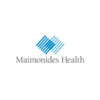
Clinical Trial of Solriamfetol for Excessive Sleepiness Related to Shift Work Disorder
Excessive SleepinessShift-work DisorderIn this research study the investigators want to learn more about whether the medication Solriamfetol improves daytime sleepiness in workers who start work at very early times (between 3 and 6am).

A Study to Assess the Efficacy and Safety of AXS-12 (Reboxetine) in Patients With Narcolepsy
NarcolepsyCataplexy1 moreThis study is a multi-center, double-blind, placebo-controlled, randomized Phase 3 trial to assess the safety and efficacy of AXS-12 in narcoleptic subjects with cataplexy and excessive daytime sleepiness (EDS).

Impact of Positive Airway Pressure Therapy on Clinical Outcomes in Older Veterans With Chronic Obstructive...
Sleep Apnea SyndromeObstructive Sleep Apnea7 moreObstructive sleep apnea (OSA) and Chronic Obstructive Pulmonary Disease (COPD) are highly prevalent chronic respiratory diseases in the Veteran population. OSA co-occurring with COPD, known as Overlap Syndrome (OVS), is a complex chronic medical condition associated with grave consequences. OVS is highly prevalent in Veterans. Veterans with OVS may be at increased risk for cognitive deficits, poor sleep quality as well as a reduced quality of life (QoL). The overall objective is to study the effects of positive airway pressure therapy on clinical outcomes in patients with OVS.

A Study to Investigate the Effect of XYWAV on Sleepiness, Polysomnography, and Functional Outcomes...
Idiopathic HypersomniaNarcolepsyThis study will assess the safety and efficacy of JZP258 (XYWAV) on sleepiness, polysomnography, and functional outcomes in patients with idiopathic hypersomnia (IH) or narcolepsy.

Impact of Bright Light Therapy on Prader-Willi Syndrome
Prader-Willi SyndromeExcessive Daytime Sleepiness4 moreThis is a placebo controlled clinical trial to assess the utility of light therapy as a sufficient treatment for excessive daytime sleepiness in patients with Prader-Willi Syndrome

A Study to Assess the Long-term Efficacy and Safety of AXS-12 (Reboxetine) in Subjects With Narcolepsy...
NarcolepsyCataplexy1 moreThis study will evaluate the long-term efficacy and safety of AXS-12 in narcoleptic subjects with cataplexy and excessive daytime sleepiness (EDS).

Voice Biomarkers to Predict Excessive Daytime Sleepiness
Sleep DeprivationThis study aims at measuring the impact of a night of sleep deprivation over the vocal characteristics of healthy subjects.To do so, the subjects takes a Multiple Sleep Latency Test (MSLT) the day after a night of total sleep deprivation (or a supervised normal night for the control subjects). Before each iteration of the MSLT, the subjects are recorded during the reading of a text and fill three medical questionnaires : Karolinska Sleepiness Scale (KSS), Visual Analogue Scale for Fatigue (VAS-F) and Visual Analogue Scale for Anxiety (VAS-A), allowing to link variations of vocal markers to the variations of these measures.

Effects of Chronobiology-guided Lifestyle Interventions on Insomnia Severity, Cognitive Performance,...
Circadian Rhythm Sleep DisorderPoor sleep is closely related to circadian misalignment; shift workers often experience shift work disorder characterized by excessive sleepiness and recurrent shift work schedules-associated insomnia. This study aims to examine the effects of a program of chronobiology-guided lifestyle interventions (CGLI) on insomnia severity, cognitive performance (psychomotor vigilance and processing speed), and sleepiness in female nurses undertaking rotating-shift work.

Lifestyle Coaching for Fatigue Mitigation in Emergency Medicine Residents
LifestyleHealthy6 moreThe purpose of this study is to determine whether personalized lifestyle coaching minimizes the negative impact of circadian disruption on performance and recovery in emergency medicine physician trainees during night shifts.

Safety and Efficacy of Pitolisant on Excessive Daytime Sleepiness and Other Non-Muscular Symptoms...
Myotonic Dystrophy 1Excessive Daytime SleepinessThe primary objective of this study is to evaluate the safety and efficacy of pitolisant compared with placebo in treating excessive daytime sleepiness (EDS) in patients with Myotonic Dystrophy Type 1 ages 18 to 65 years. The secondary objectives of this study are to assess the impact of pitolisant on fatigue, cognitive function and the burden of disease along with assessing the long-term safety and effectiveness of pitolisant in patients with Myotonic Dystrophy Type 1 ages 18 to 65 years.
